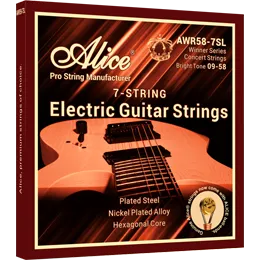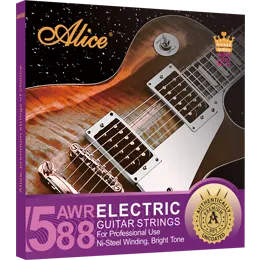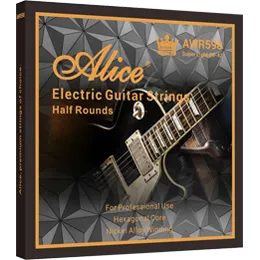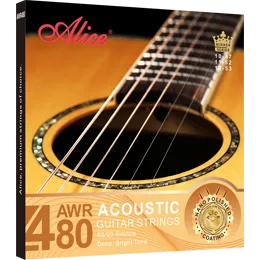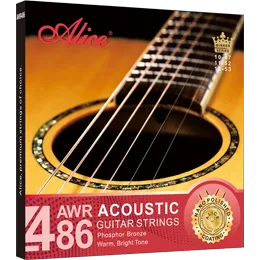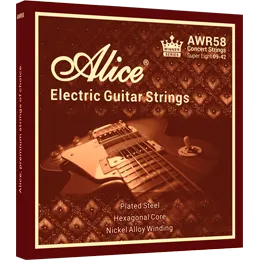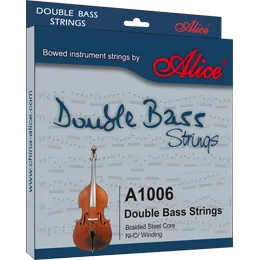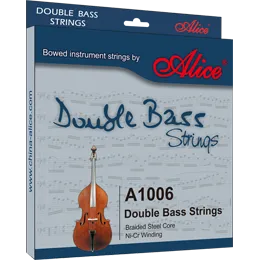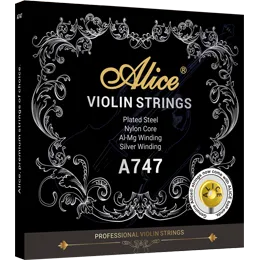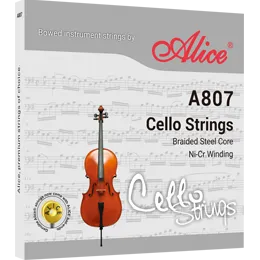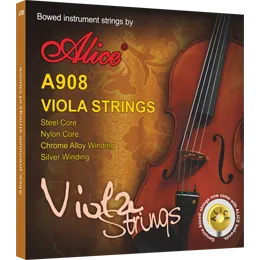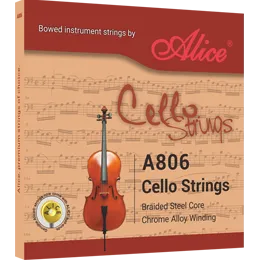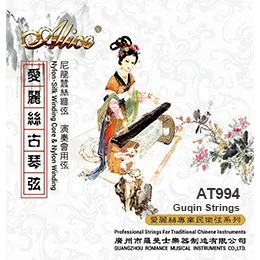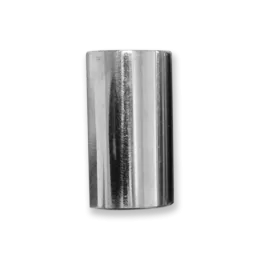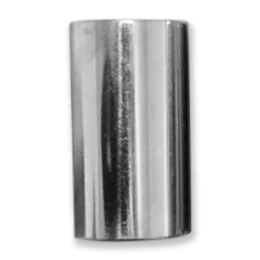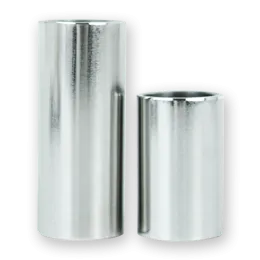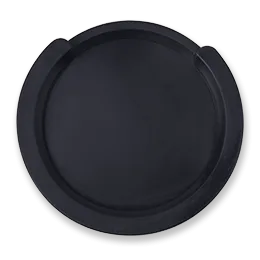What Are the Different Types of Guitar Strings?
Guitar strings may seem like a small part of your instrument, but they play a crucial role in the overall tone, playability, and performance of your guitar. Whether you're a beginner or a seasoned player, understanding the different types of guitar strings can help you make informed decisions that enhance your playing experience.
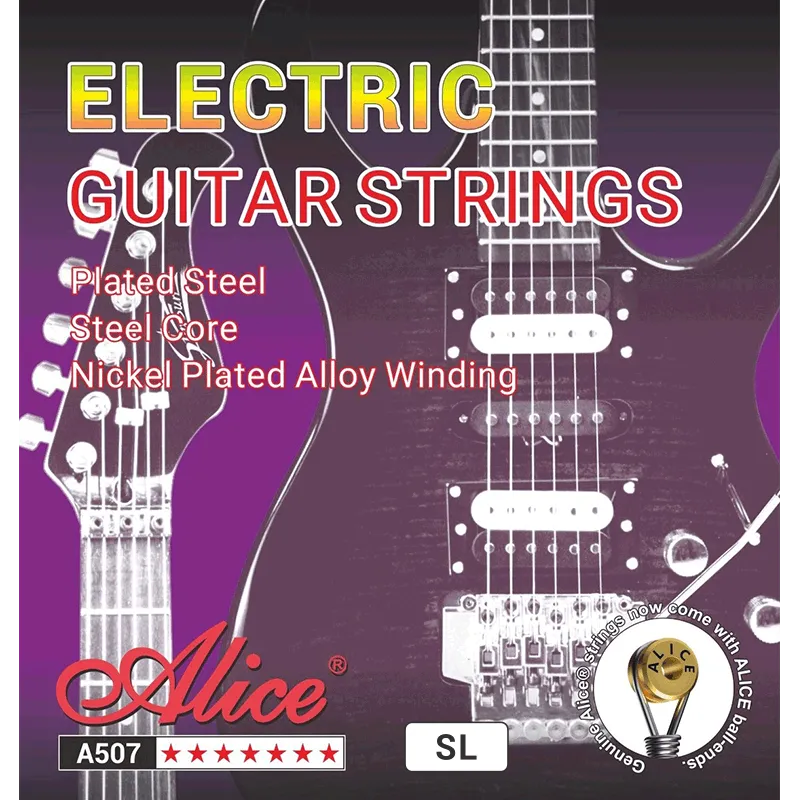
1. By Instrument Type: Guitar String Categories
Guitar strings are primarily categorized based on the type of guitar they are designed for:
A. Acoustic Guitar Strings
Acoustic guitars use steel strings and are available in two main forms:
80/20 Bronze (Brass): Made from 80% copper and 20% zinc, these strings offer a bright, crisp tone and are popular among fingerstyle and strumming players. However, they tend to oxidize quickly.
Phosphor Bronze: These strings include phosphor in the bronze alloy, resulting in a warmer tone with longer-lasting brightness and corrosion resistance.
Silk and Steel: These strings have a softer feel and a mellower tone, making them ideal for folk music and fingerpicking. They are easier on the fingers and produce less tension.
B. Electric Guitar Strings
Electric guitars use steel or nickel-based strings, optimized for magnetic pickups:
Nickel-Plated Steel: These are the most popular strings for electric guitar, offering a balanced tone that’s both bright and warm.
Pure Nickel: Known for a warmer, vintage tone, pure nickel strings are favored by blues and classic rock players.
Stainless Steel: These are brighter, corrosion-resistant, and provide longer-lasting tone, though they can feel a bit stiffer under the fingers.
C. Classical (Nylon) Guitar Strings
Classical guitars require nylon strings and are structured quite differently:
Clear Nylon: These strings offer a bright, projecting tone suitable for classical music and solo playing.
Black Nylon: Often warmer and mellower in tone, they are used in jazz or flamenco settings.
Fluorocarbon: Known for their clarity and durability, fluorocarbon strings offer better intonation and resistance to humidity.
Silver-Plated Copper Wound (Bass Strings): The lower three strings are usually wound with silver-plated copper over nylon for increased resonance.
2. By String Core Type: Hex Core vs. Round Core
The internal core of a string greatly affects its tension and response:
Hex Core: Featuring a six-sided inner core, these strings provide a brighter tone, better tuning stability, and are more commonly used in modern string manufacturing.
Round Core: These strings offer a more vintage tone with a smoother feel, often preferred by jazz and blues musicians for their warmer, more flexible response.
3. By Coating: Coated vs. Uncoated Strings
Modern string technology has introduced coatings to extend string life:
Uncoated Strings: These have a natural feel and tone but are more susceptible to corrosion from sweat and humidity.
Coated Strings: These feature a thin polymer coating that helps prevent oxidation and grime buildup. Brands like Elixir popularized coated strings. While they last longer, some players feel they slightly reduce brightness or "feel less natural."
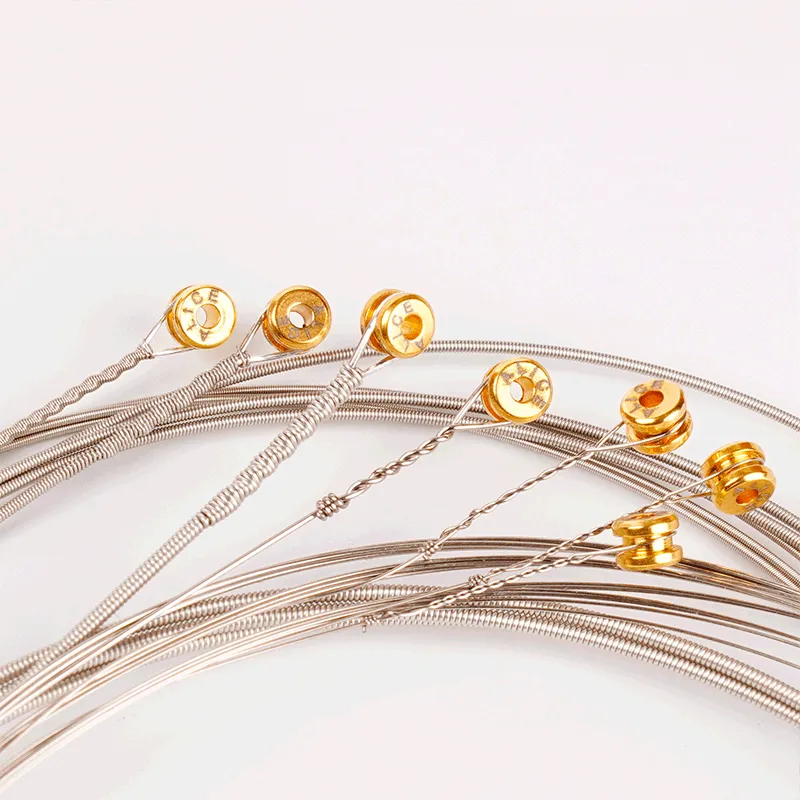
4. By Winding Method (for Wound Strings)
Wound strings (typically the lower strings) differ in how their outer wire is wrapped around the core:
Roundwound: The most common, these have a textured surface and provide bright tone and more finger noise.
Flatwound: These are smooth to the touch, with less finger noise and a darker tone, ideal for jazz or studio playing.
Halfwound (Groundwound): A mix of both worlds — brighter than flatwound but smoother than roundwound, offering reduced noise and moderate brightness.
5. String Gauge: Light, Medium, Heavy
Gauge refers to the thickness of the strings and affects tone, playability, and tension:
Light Gauge (e.g., .009 - .042): Easier to bend and fret, perfect for beginners and lead guitarists. However, they may break more easily and produce slightly less volume.
Medium Gauge (e.g., .010 - .046): A balanced choice suitable for many styles. They offer good tone with manageable playability.
Heavy Gauge (e.g., .011 - .050+): Provide more volume and sustain, better for drop tunings or aggressive playing styles, but they require stronger finger strength and more effort.
Classical guitar strings are usually rated as:
Low Tension: Softer feel, easy on the fingers, mellow tone.
Normal Tension: Balanced in tone and playability.
High Tension: Louder and punchier, but stiffer to play.
6. Specialty Strings
Depending on the music genre or specific needs, there are specialty strings available:
Coated or Color Strings: Some strings are color-coated for aesthetics or visibility on stage.
Extended Range Guitar Strings: 7, 8, or 9-string guitars require specially sized string sets.
Drop Tuning Sets: Designed with thicker lower strings to accommodate tunings like Drop D, C, or B.
Hybrid Sets: Combine light gauge treble strings with heavier bass strings for a mix of easy bending and strong rhythm tone.
7. Choosing the Right Strings for You
Selecting the right strings depends on several factors:
Instrument Type: Always match the string type with your guitar (steel for acoustic, nickel/steel for electric, nylon for classical).
Genre & Playing Style: Bright, snappy strings like 80/20 bronze suit country and folk, while flatwounds shine in jazz settings.
Experience Level: Beginners often prefer lighter gauges for comfort, while professionals may prefer the tone and durability of medium or heavy strings.
Environmental Factors: Coated strings are ideal for humid or sweaty conditions.
Alice Strings: A Reliable Partner for Every Guitarist
If you're looking for high-quality, affordable guitar strings that offer a wide variety of options across different instrument types, Alice Strings is a name you can trust.
Alice Strings specializes in producing classical, acoustic, and electric guitar strings using advanced technology and precise craftsmanship. With a commitment to consistency, tone quality, and player comfort, Alice offers strings made with:
Anti-rust coating for longer life
High-quality alloys for optimal tone
Wide selection of gauges and tensions
Available in various packaging options for beginners to professionals
From hobbyists to professional musicians, Alice Strings delivers performance, reliability, and value — making them a favorite choice in music stores and studios worldwide.


